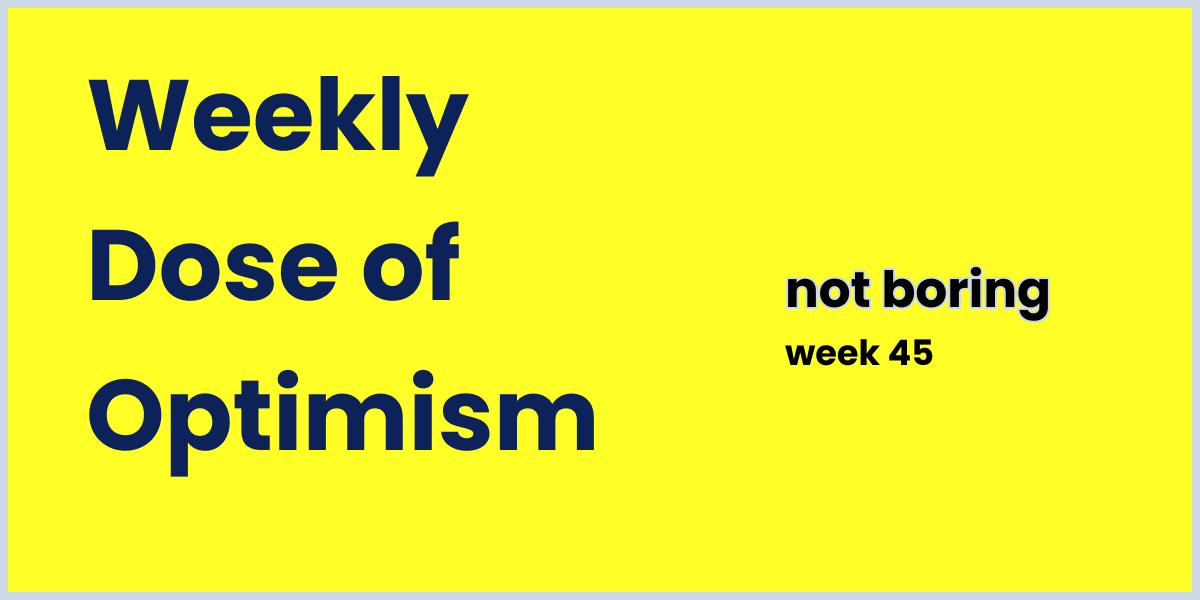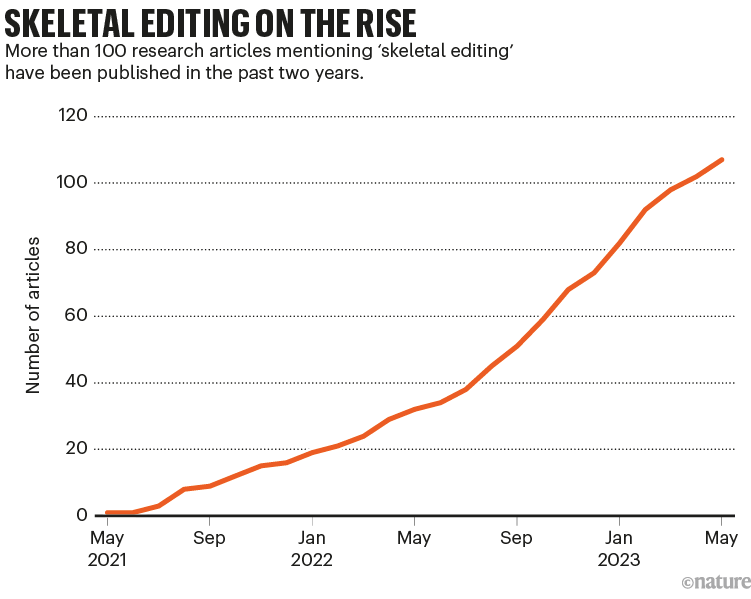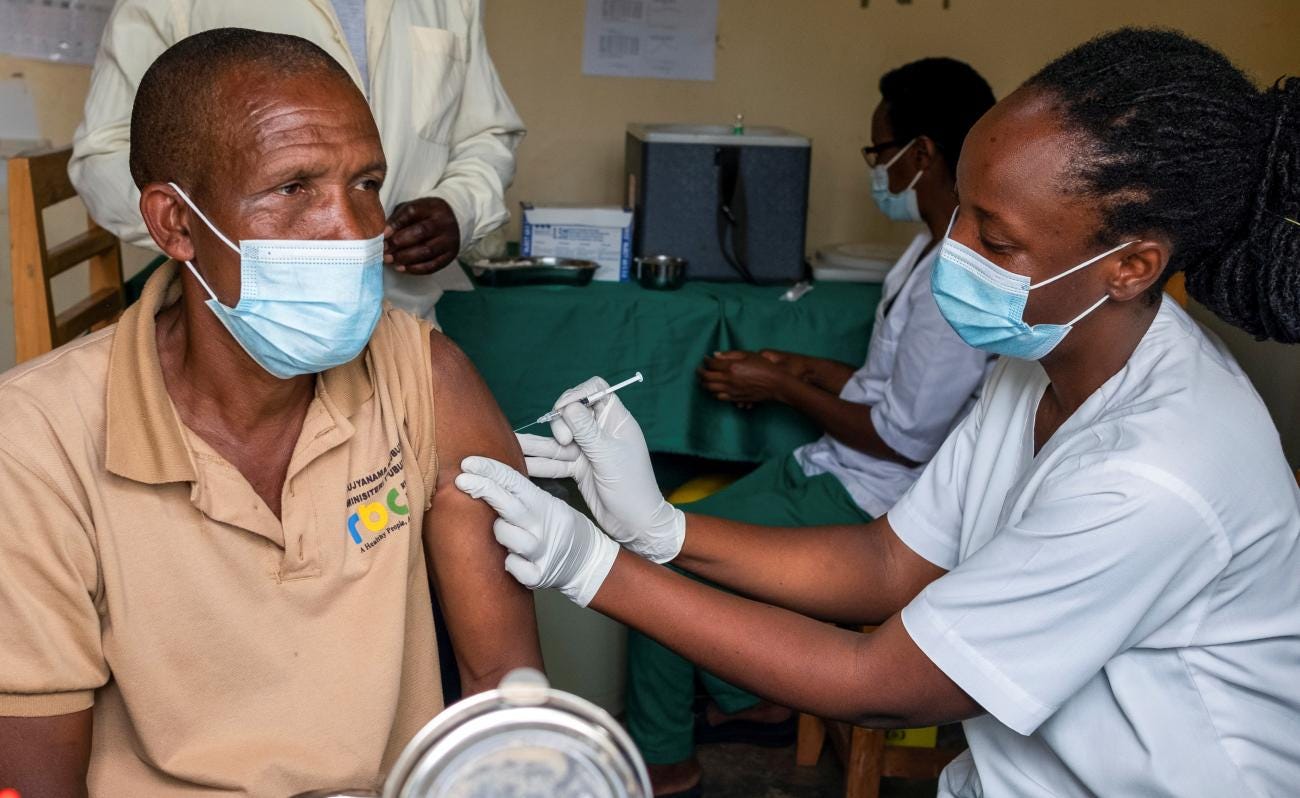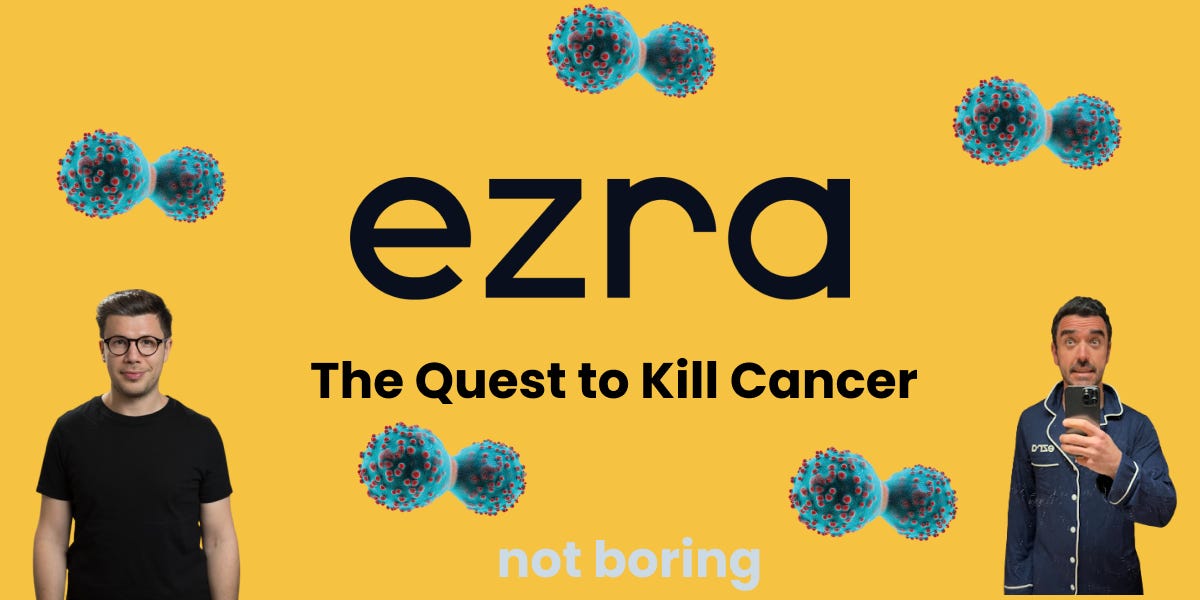Not Boring by Packy McCormick - Weekly Dose of Optimism #45
Hi friends 👋, Happy Friday and welcome back to our 45th Weekly Dose of Optimism. Last week was the Obama edition, so it’s only fair that this week we’re making Optimism Great Again! Anyway… Let’s get to it. The Weekly Dose is brought to you by... Fount Fount is the personalized health and performance program used by high-level operators, execs, and people who want to get the most out of themselves. If you’re a longtime Not Boring reader you’ll know that Packy’s been using Fount for over a year to get his energy back, get in better shape, and improve his overall health metrics. Without Fount, Packy wouldn’t have clocked a 1:24:34 half-marathon earlier this month… Fount recently launched a bunch of new products and offerings aimed at the specific needs of its customers.
If you’re interested in either Fount Pro or Exec, book a free consult with one of their world-class performance advisors at the link. Plus, if you mention Not Boring during the consult, they’ll give you $500 off your first month. (1) Ketamine versus ECT for Nonpsychotic Treatment-Resistant Major Depression From The New England Journal of Medicine
A new head-to-head study in the The New England Journal of Medicine, found that ketamine was at least as effective as ECT in patients with treatment-resistant depression. Electroconvulsive therapy, or ECT, has long-established efficacy but it comes with some unwanted side effects (potential memory loss, muscle pain and weakness) and a tough stigma (think getting strapped to a table with a leather shock helmet) that makes it unwanted by some patients. Ketamine, on the other hand, does not come with the same side effects, but does come with a stigma of its own — that it’s a horse-tranquilizing party-drug. Overall, though, it’s about giving people safe options in treating the otherwise horrible affliction that is treatment-resistant depression. ECT is one option, ketamine another, and there is new and exciting research coming out on a whole host of other psychedelic-based treatments that are showing promise. (2) ‘Almost magical’: chemists can now move single atoms in and out of a molecule’s core Mark Peplow for Nature
Sometimes we cover stories of individual breakthrough discoveries or wave-making studies, but those stories are usually the results of graphs like the one above. A flush of excitement, research, and resources on a specific topic leads to a major innovation. According to this Nature article, we may be on the cusp of one such breakthrough in “skeletal editing.” Skeletal editing is the process by which a molecule is edited by deleting, adding, or swapping single atoms in its core. It has the potential to transform how organic chemists design molecules, and may lead to, among other things, speedy drug discovery. With the momentum we’re seeing in AI, skeletal editing, immunotherapy, gene-editing, and early detection (will get to this later) — it just seems like we’re on the cusp of developing treatments and cures to some of the diseases that have long ailed us. (3) Causal evidence that herpes zoster vaccination prevents a proportion of dementia cases From Markus Eyting, Min Xie, Simon Heß, Simon He, Pascal Geldsetzer
Take, for example, dementia and Alzheimer’s — seems like these terrible diseases are close to having effective treatments, if not cures, over the coming years. In a new study, it was shown that recipients of the herpes zoster vaccine (Zostavax) were considerably less likely to develop dementia later in life. The study compared adults just a week apart in age but differing in vaccine eligibility, and found that receiving the vaccine decreased the likelihood of a new dementia diagnosis by 3.5 percentage points over a seven-year period, which was a 19.9% relative reduction. The study concluded that the varicella zoster virus may play a significant role in the development of dementia, especially among women, and further randomized trials are needed. While this is not, of course, a cure for dementia (or even a treatment), it gives researches a better understanding of what causes dementia in the first place. And from this understanding, they can develop new treatments, therapeutics, and vaccines to potentially prevent or cure the disease down the line. (4) Rwanda’s Health-Care Success Holds Lessons for Others Cameron J. Sabet, Alessandro Hammond, Simar S. Bajaj, Belson Rugwizangoga for Think Global
A few weeks ago I got a call from my sister and she informed me she was in Rwanda. “Rwanda?” I anxiously asked. From the tone of my voice, she could tell that I was scared. And she knew why I was scared. Rwanda, at least in the West, is associated with genocide. You don’t want to get a call from your sister and have the first words come out of her mouth immediately conjure images of genocide. She quickly assuaged my fears. Rwanda, she informed me, was now like the “Singapore of Africa.” Since 1994, under the leadership of President Paul Kagame, the country has experienced rapid economic development and stabilization. It’s where my sister goes on the continent to get banking business done quickly. Its tourism economy has rebounded. And, as the story above notes, it’s developed somewhat of a playbook for developing countries in increasing healthcare availability and lengthening lifespans. The government, to be certain, does face criticism. But overall, the country is starting to become known more forward thinking policies on healthcare, technology, and gender equality and less known for its darkest moment.
This statement isn’t the “everything is going to be OK, don’t even worry about it” flavor of optimism. But it is an official acknowledgement, from some of the most powerful figures and organizations in AI (OpenAI, Google, Anthropic, Geoffrey Hinton, etc.) that AI is such a powerful tool/trend/technology that it deserves societal-scale attention, and yes ultimately, societal-scale regulation. There’s two pessimistic ways to view this statement:
I think both are partially true. Yes, the worst-case AI outcome is that civilization goes bye-bye. And yes, OpenAI, Google, and Anthropic all benefit from stricter AI regulation. But I also think there are two ways to view this statement more optimistically.
However you view it, it’s an important story that we think merits some further thinking over the weekend. (Bonus) Ezra: The Quest to Kill Cancer Packy McCormick for Not Boring by Packy McCormick (lol)
Yesterday Packy published a Sponsored Deep Dive on Ezra. Ezra is on a mission to detect cancer early for everyone in the world. The company offers full-body MRI scans in order to catch cancer earlier to increase the odds of beating it. As part of the piece, Ezra also announced its biggest leap to date: the 30-minute Full Body Flash scan, which cuts both the time and cost of getting an MRI to screen cancer in half. Ezra Flash, the AI powering the new scan, has recently received FDA clearance, enabling Ezra to launch the world’s first 30-minute Full Body MRI scan. As part of his research, he got himself a scan…and revealed that he hadn’t been to a doctor’s office since 2009. Packy’s personal experience is entertaining, but we’re hoping this analysis of the cancer screening industry brings more attention from other operators, investors, partners, and clients to an important (and potentially life saving) topic. Not to bury the lede, Packy was cancer free. If you want to get yourself checked out, book your Ezra scan and use the code PACKY150 to get $150 off. That’s all for this week. We’ll be back in your inbox on Monday. Enjoy the long weekend. Thanks for reading, Dan |
Older messages
Ezra: The Quest to Kill Cancer
Thursday, June 1, 2023
A Sponsored Deep Dive on Early Detection as a Cure
Weekly Dose of Optimism #44
Friday, May 26, 2023
Brain Implants, Airships, Renewable Costs, Fourth Trimester, A Crypto Future, Succession
The Fusion Race
Monday, May 22, 2023
Packy and Rahul Team Up to Cover the History and Future of Fusion
Weekly Dose of Optimism #43
Friday, May 19, 2023
Frontier, Seaflooding, Alzheimer's Mutations, Reversing Brain Signals, Space Cells
Weekly Dose of Optimism #42
Friday, May 12, 2023
Helion, Nuclear Power, Google Search, Sohn Conference, Pancreatic Cancer Vaccines
You Might Also Like
🔮 $320B investments by Meta, Amazon, & Google!
Friday, February 14, 2025
🧠 AI is exploding already!
✍🏼 Why founders are using Playbookz
Friday, February 14, 2025
Busy founders are using Playbookz build ultra profitable personal brands
Is AI going to help or hurt your SEO?
Friday, February 14, 2025
Everyone is talking about how AI is changing SEO, but what you should be asking is how you can change your SEO game with AI. Join me and my team on Tuesday, February 18, for a live webinar where we
Our marketing playbook revealed
Friday, February 14, 2025
Today's Guide to the Marketing Jungle from Social Media Examiner... Presented by social-media-marketing-world-logo It's National Cribbage Day, Reader... Don't get skunked! In today's
Connect one-on-one with programmatic marketing leaders
Friday, February 14, 2025
Enhanced networking at Digiday events
Outsmart Your SaaS Competitors with These SEO Strategies 🚀
Friday, February 14, 2025
SEO Tip #76
Temu and Shein's Dominance Is Over [Roundup]
Friday, February 14, 2025
Hey Reader, Is the removal of the de minimis threshold a win for e-commerce sellers? With Chinese marketplaces like Shein and Temu taking advantage of this threshold, does the removal mean consumers
"Agencies are dying."
Friday, February 14, 2025
What this means for your agency and how to navigate the shift ͏ ͏ ͏ ͏ ͏ ͏ ͏ ͏ ͏ ͏ ͏ ͏ ͏ ͏ ͏ ͏ ͏ ͏ ͏ ͏ ͏ ͏ ͏ ͏ ͏ ͏ ͏ ͏ ͏ ͏ ͏ ͏ ͏ ͏ ͏ ͏ ͏ ͏ ͏ ͏ ͏ ͏ ͏ ͏ ͏ ͏
Is GEO replacing SEO?
Friday, February 14, 2025
Generative Engine Optimization (GEO) is here, and Search Engine Optimization (SEO) is under threat. But what is GEO? What does it involve? And what is in store for businesses that rely on SEO to drive
🌁#87: Why DeepResearch Should Be Your New Hire
Friday, February 14, 2025
– this new agent from OpenAI is mind blowing and – I can't believe I say that – worth $200/month





